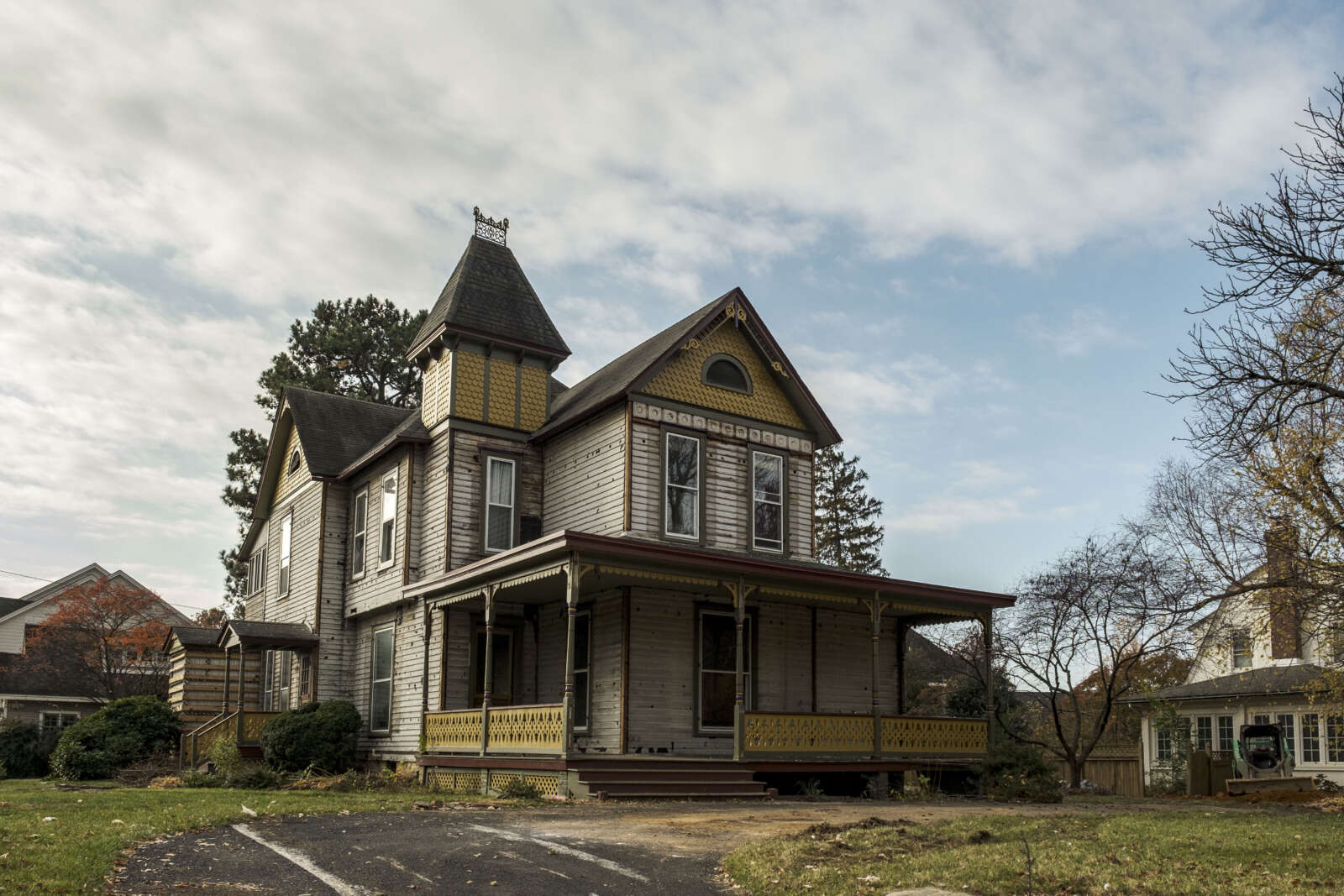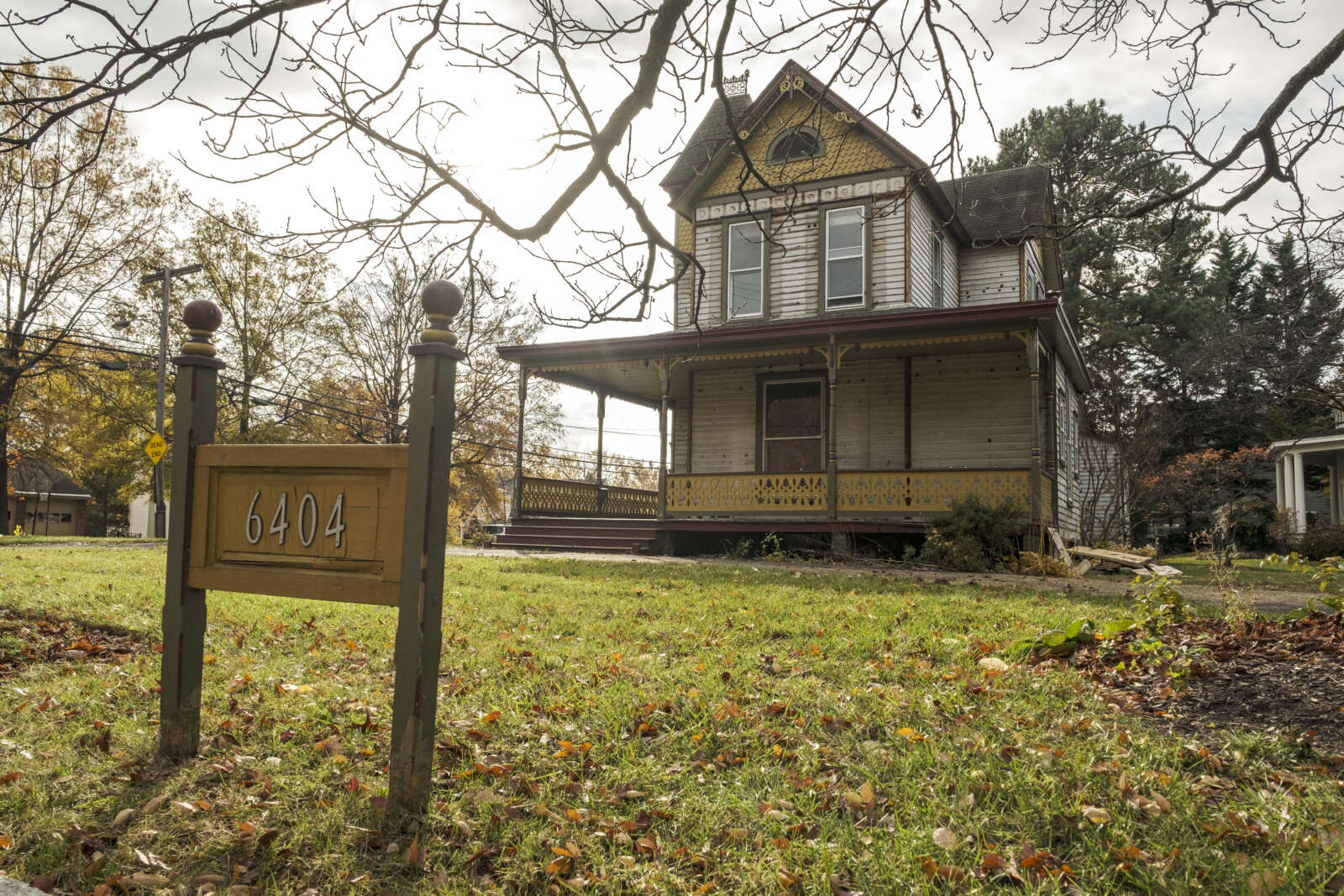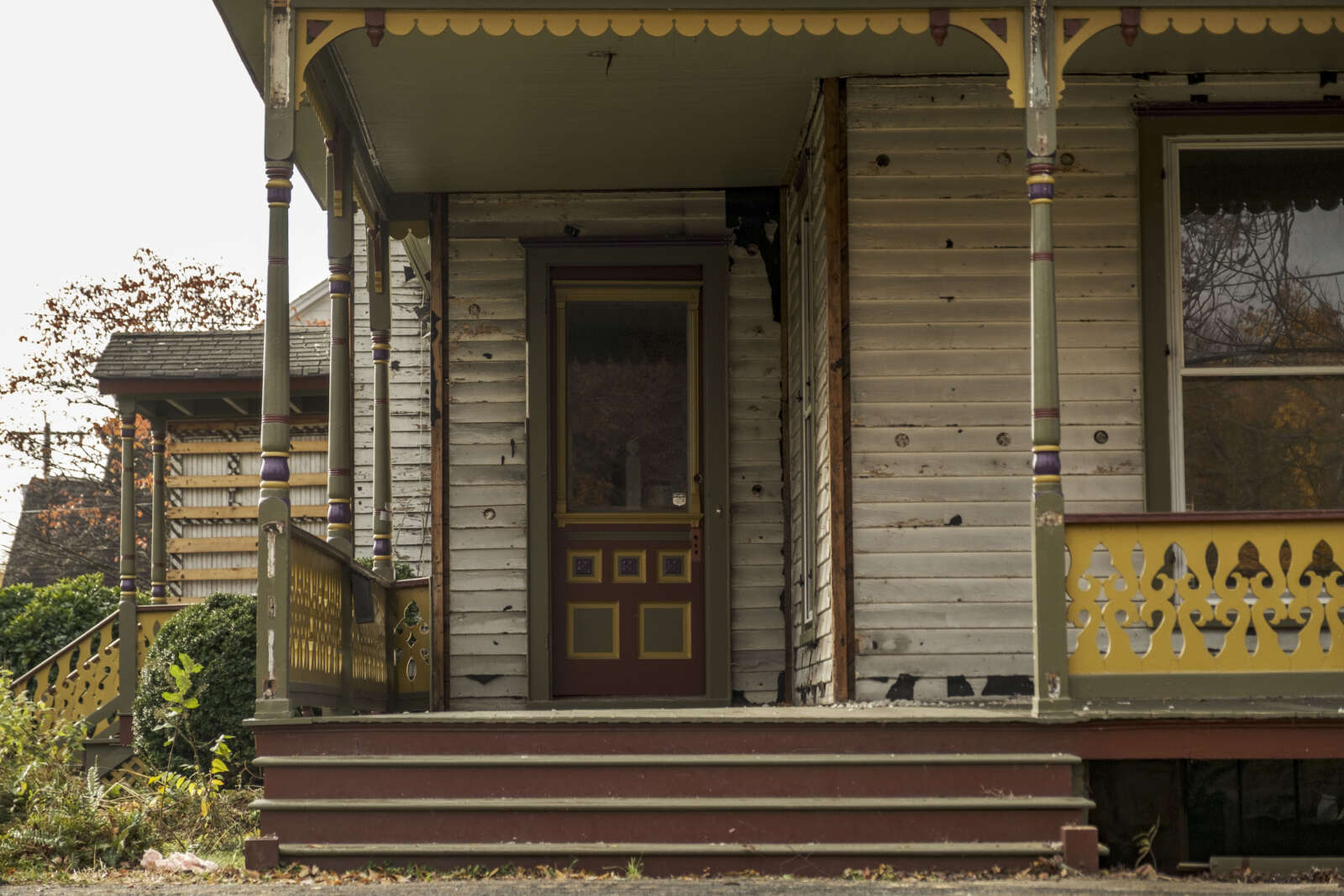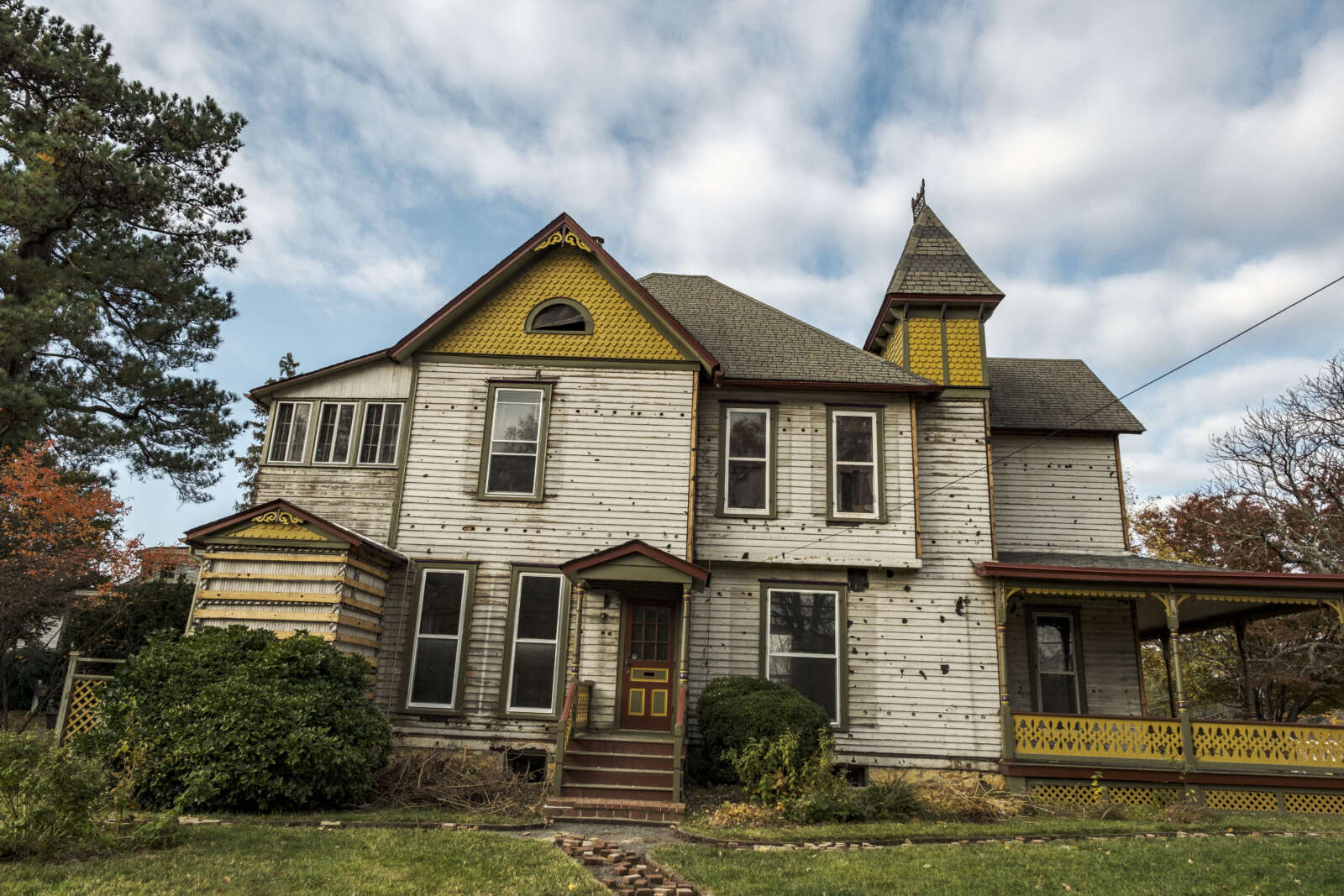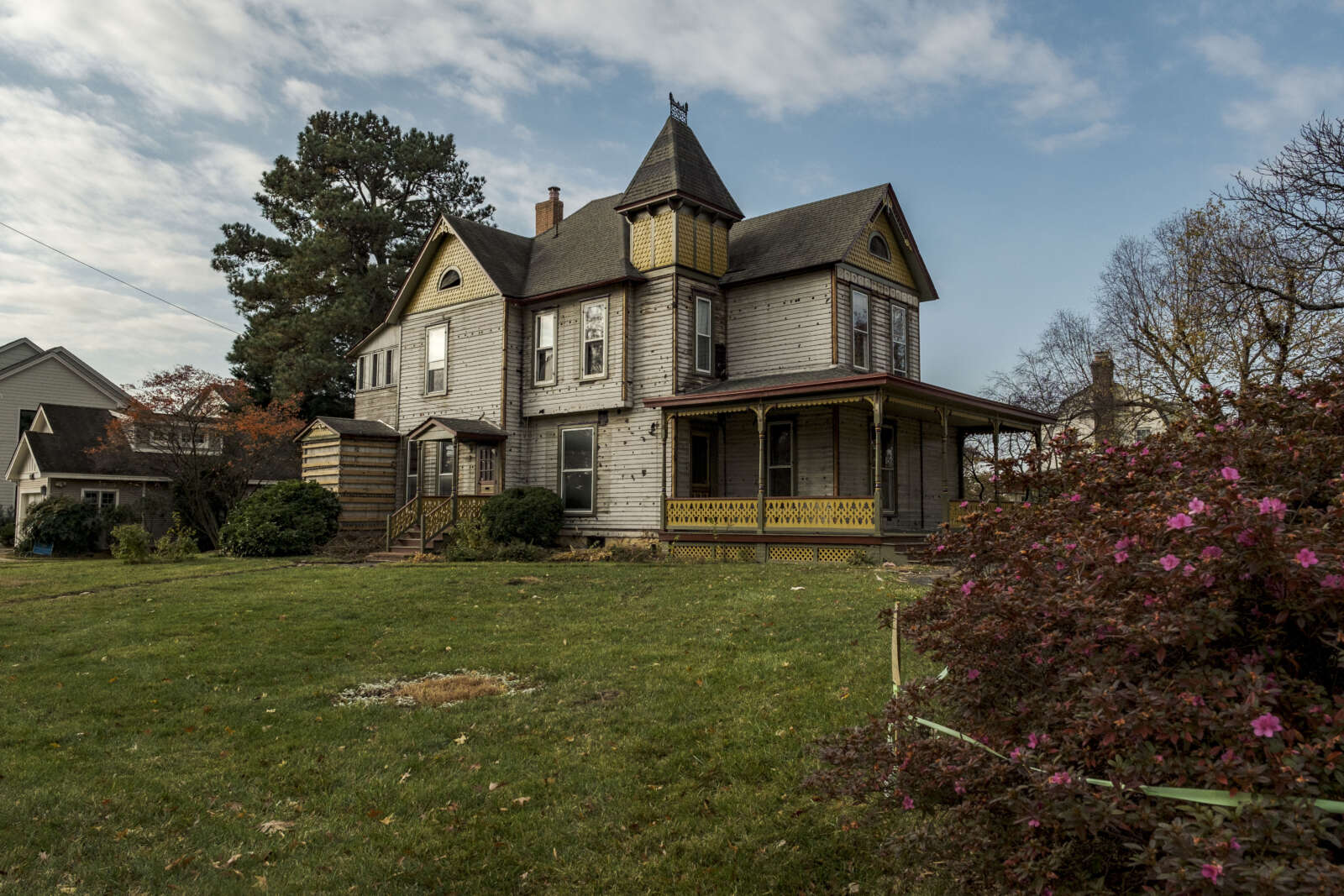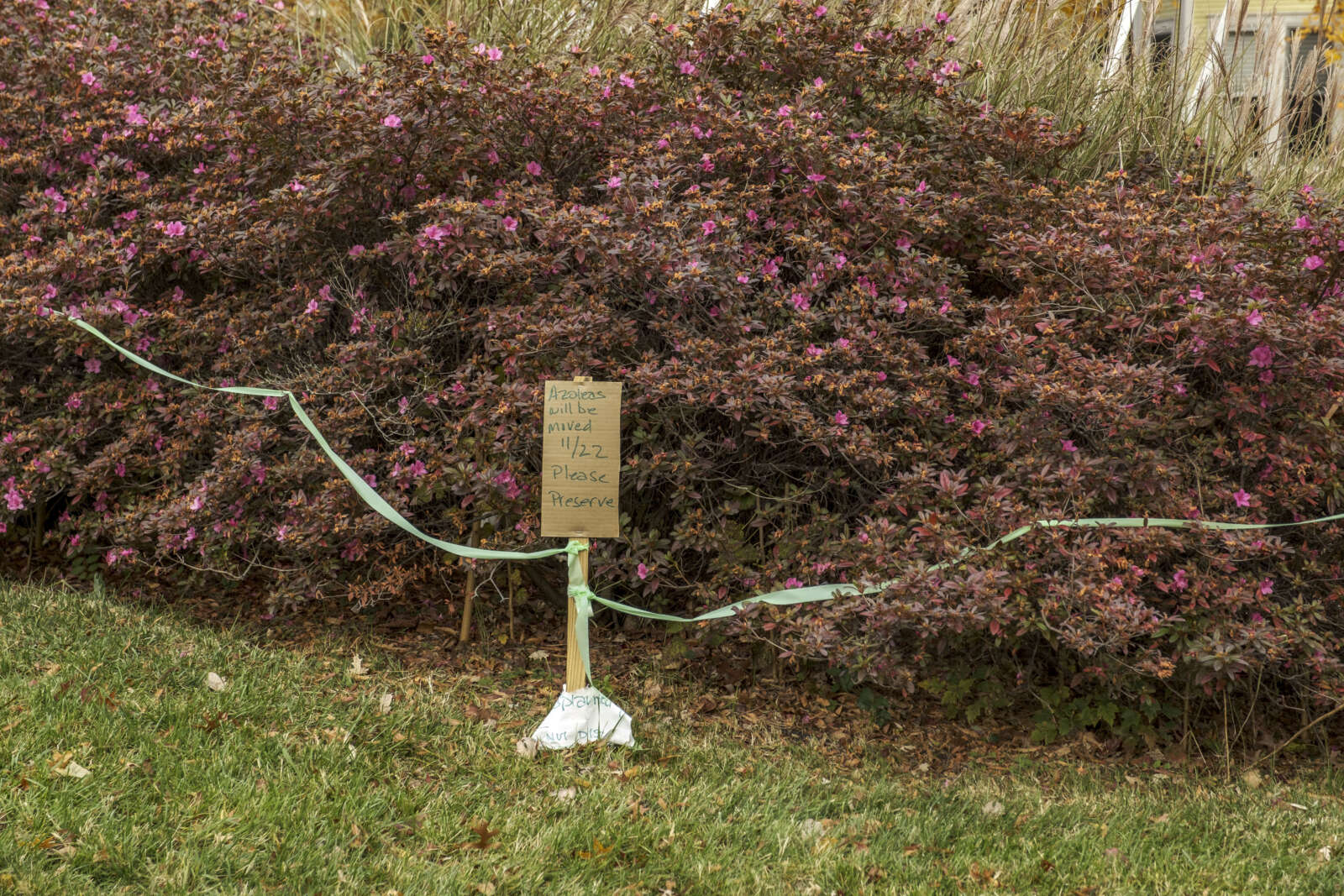(Updated on 11/22/21) The way has been cleared for the demolition of a home built in 1889, near the East Falls Church Metro station.
The Fellows-McGrath House, located at 6404 Washington Blvd and profiled in the Falls Church News-Press earlier this year by local historian Charlie Clark, was home to Harry Andrew Fellows. Fellows was Mayor of Falls Church and in 1932 became the first chairman of the newly formed Arlington County Board. The home was later a bed and breakfast known as “Memory House,” according to a real estate listing.
There is also a 130-year-old chestnut tree on the site that may be destroyed in the redevelopment now that demolition permits have been approved for the site.
Earlier this year, Clark reported that the home was purchased by Manassas-based FNM Investments LLC for $1.1 million and determined to be “uninhabitable.”
A demolition permit has since been filed and approved for the property. A county spokeswoman said such permits for private homes are outside of the discretion of the County Board.
“On August 18, the County approved a Land Disturbing Activity (LDA) permit for the Fellows-McGrath House… and on September 3, the County approved a demolition permit,” said Erika Moore, communications specialist for Arlington County. “Both LDA and Demolition permits are approved administratively. Neither the County Board nor the County Manager has authority to stop their issuance when all requirements are satisfied.”
Like the Febrey-Lothrop estate, which was demolished earlier this year, the Fellows-McGrath House’s run-down state makes the land it sits on more valuable to developers than the house itself.
“Manassas realtor Masum Kahn, who bought the house after eight months on the market to build modern homes, has not set a demolition schedule,” Clark reported in September. “Though he would consider selling ‘for the right price.'”
Local preservationist Tom Dickinson, after an unsuccessful bid to save the Febrey-Lothrop, launched a similarly doomed effort to save the Fellows-McGrath House.
“This sad situation about the subject property only serves to reinforce the fact that the County Manager and County Board could not care less about preserving and conserving unique, significant historic homes and property in Arlington,” Dickinson said. “Unlike our neighboring jurisdictions in Alexandria and Fairfax, Arlington is completely oblivious to the civic, community, and even economic value tied to historic properties… [it’s] another sad and unjustified loss to the entire community to see a magnificent, totally restored, unique 1889 Victorian crushed and bits and pieces hauled to a landfill.”
Dickinson said he filed an application with the Historical Affairs and Landmark Review Board to designate the property as historic, but the application was tabled — and the fate of the house was likely already sealed given that the owner had already filed for a demolition permit.
Now, Dickinson said he is advocating for changing state laws so that Arlington County’s historic designation process no longer needs to race against its own administrative permit approval process.
“We are working to amend state laws in order to eliminate this Catch-22 that was also the death knell for the late, lamented Febrey Lothrop Rouse estate,” Dickinson said. “If passed, this amendment would prohibit the issuance of a demolition permit for any property under review for local historic district designation.”


